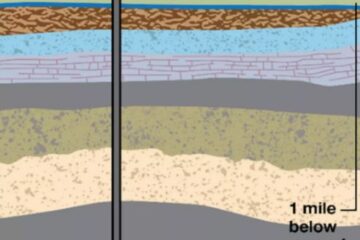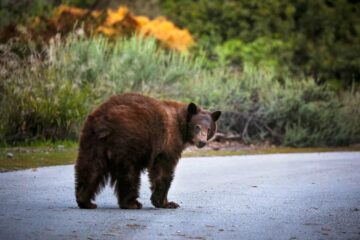Don’t blame the smelt: The salmon too reflects the dire state of the California Delta
Farmers say concern about one tiny fish costs them water. But there’s salmon too.
Source of this article: The Los Angeles Times, May 6, 2016
By Robin Abcarian, Contact Reporter
The delta smelt is:
1) A nearly extinct species that serves as a crucial barometer for the health of the California Delta.
2) A useless bait fish that deprives Central Valley farmers of critical water for their almond trees.
3) Delicious with cheese and crackers.
That all depends on who you are. If you are Ted Cruz, a Republican who suffered his own form of extinction this week with the suspension of his presidential campaign, you’d opt for No. 3. That was, after all, the punch line of one of the smelt jokes he told while trying to woo California Republicans at their convention last weekend.
Yes, Cruz told more than one! The other involved tips to get fish breeding: Put up a disco ball, play Barry White. Har.
Anyway, they eat this stuff up in the Central Valley, where drought-stricken (and overwhelmingly Republican) farmers loudly complain that robust efforts to save a small, doomed fish are what stand between them and an adequate water supply.
Not exactly.
“We’ve got more of the salmon species that are in trouble than the smelt,” said Ted Sommer, a lead scientist with the California Department of Water Resources. Winter-run Chinook and spring-run Chinook, named for the time of year the adults swim under the Golden Gate Bridge, plus steelhead trout, he said, “are all in terrible condition.”
But nobody picks on salmon.
About 25 million Californians (not including farmers or fish) are served by water that flows into and out of the delta, which lies south of Sacramento, west of Stockton and east of the Bay Area. Half the state’s river water flows through the delta’s skeins.
The region, about 1,100 square miles, is dotted with reclaimed, below-sea-level farmland — pears have given way now to vineyards — and tiny island towns protected by levees.
Until this week, I hadn’t spent much time in the delta since my family rented a houseboat the summer I was 10. You could say that humans have wrecked the place — with their sewage outflows, their pesticide runoffs and their thirst for the delta’s fresh water — but I found the place intoxicating.
“I have always thought of the delta as California’s last frontier,” said William Jennings, a former tobacco pipe salesman who has chaired the California Sportfishing Protection Alliance since 1988. He has devoted decades to protecting fish and their habitats.
“They still deliver mail by boat. Unspeakably gorgeous in places, with meandering sloughs, and others where it’s riprapped and sterile,” he told me Tuesday. “The old-timers, the river rats, they talk about the delta of their youth and the abundance of species, and we realize how much we are losing.”
::
At the southern end of the delta, the pumps that divert water to farmers are regulated by many factors, including the proximity of endangered fish like the salmon, steelhead and, of course, smelt.
The pumps are strong enough to reverse the flow of the San Joaquin River, which confuses fish and/or sucks them to their death. When conditions are deemed perilous, wildlife officials order the pumps to slow down, which infuriates growers.
They were incensed a few weeks ago, when wildlife officials ordered the pumps to slow down despite rain-swollen rivers.
“You don’t have to look any further than out-of-control environmental policies that have resulted, since 2008, in 1.4 trillion gallons of fresh water being dumped into the Pacific Ocean because of a little three-inch bait fish,” Cruz told his appreciative audience.
In California’s water wars, it’s hardly worth mentioning that truth is the first casualty. But it should at least be noted that last month’s pumping limits were prompted not by the location of smelt, but of salmon.
Did I mention no one picks on salmon?
In fact, I have never — not once — heard a politician or a farmer talk smack about salmon. Everyone loves salmon. It is the king of California game fish, the linchpin of a commercial fishery that is beleaguered but still worth more than a billion dollars a year. And of course, it is delicious with cheese and crackers.
“It’s easy to pick on the poor little delta smelt,” Sommer said. “They are obscure, where salmon is iconic.”
Still, he considers the smelt the most important non-game fish in the U.S.
It is, like that poor coal mine canary, a harbinger of trouble. Unlike salmon, smelt don’t move around much. They live only in the delta’s upper estuary, so every ill that befalls the delta — sewage runoff, salinity, invasive predators — hits the smelt hard, Sommer said. “They were one of the first species we noticed were collapsing.”
::
I visited Jennings at home in Stockton, where he lives in a cottage that is a replica of the Scottish poet Robert Burns’ childhood home. He sat in his cluttered office next to a dozen laudatory wall plaques deeming him the best Outdoor Californian, the best Fly Fisherman. He pretended to tear out his hair when I noted that most Californians don’t grasp how damaged the delta is.
“We have brought an entire estuary and ecosystem to the brink of collapse. Eighty-three percent of California native fish are extinct, bordering on extinction, or threatened with extinction,” he said.
But is he entirely unsympathetic to the woes of Central Valley farmers?
Pretty much.
“Of course we need to grow food and eat,” he said. Then he turned to his computer and called up county agricultural reports for the first few years of our most recent drought.
“In 2011, the San Joaquin Valley gross crop production was $30.5 billion. In 2012, it was $32.5 billion. In 2013, it went to $39 billion. These farmers crying, ‘Oh my God, you are killing us?'” he said. “Our fisheries have plummeted to almost extinction. Agriculture is producing record years.”
Before I left, he told me about a favorite essay, “The Star Thrower,” by the anthropologist Loren Eiseley about a man who flings stranded starfish into the ocean, with no guarantee they will live.
“It didn’t matter that he saved any,” Jennings said. “It mattered that he tried.”



0 Comments